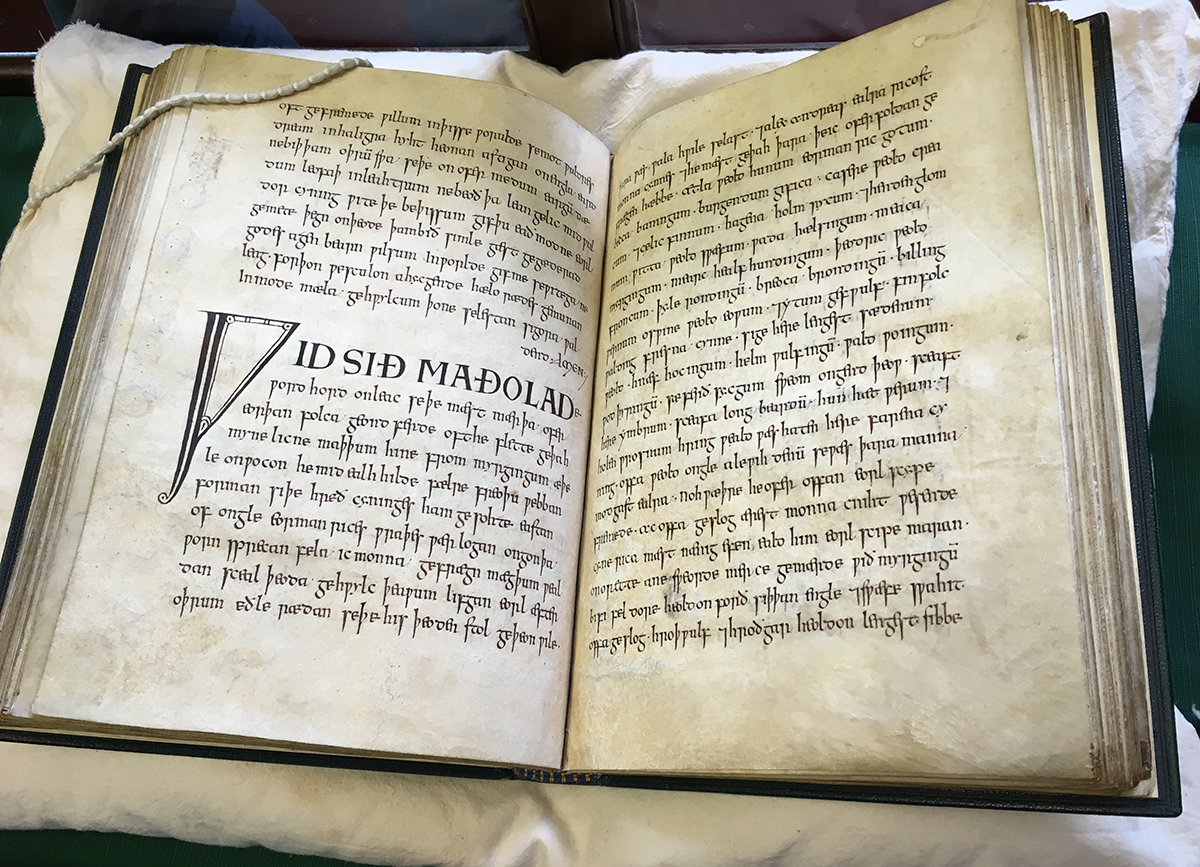
The time during and after the Migration Period (ca. AD 400-600) was a period of intense linguistic interaction and change for the speakers of early medieval Germanic languages. One of the best preserved of these languages is Old English, the language spoken by the descendants of the Angles, Saxons, Jutes, and Frisians. But rather than taking Old English in isolation, this course will use it as a gateway to learning about other Germanic languages from many time periods, including the English and German of the present day.
In this course, students will learn the fundamentals of Old English grammar, orthography, and pronunciation, which will impart a deeper perspective on the linguistic mechanics of the Germanic languages as a whole. They will consequently improve their metalinguistic awareness, their grasp on the chronological development of English and German, and their knowledge of modern English and German grammar and syntax. Further, by comparing Old English to Old Saxon, Old Frisian, Old High German, Old Norse, and even Gothic, students will also explore how the modern and historical Germanic languages relate to one another, particularly with regard to phonological laws and semantic variance. Students will also read and discuss selections from the Heliand, Beowulf, and Old High German Hildebrandslied.
Interested students are advised to obtain their own copy of Peter S. Baker’s Introduction to Old English, preferably the third edition (Wiley-Blackwell 2012). One copy is available in the Universitätsbibliothek. The prior edition of 2003 is also available in the Universitätsbibliothek and in the Bibliothek des Englishen Seminars.
This course is introductory and assumes no prior knowledge of any historical languages. Students who have already completed Discovering Old English may take Old English and Beyond.
This course is also open to students studying Germanistik; please contact the instructor for details on earning CPs in Germanistik.
Assessment/requirements:
Übung: Weekly attendance and active participation in class is expected for this language learning course. Students will be expected to read assigned chapters in the textbook and revise all topics each week. Students will hand in weekly assignments (short translations, parsing assignments, etc.) via Moodle dropbox before the start of each class period. At the end of the semester, students taking the course as an Übung are to submit a short independent translation of a provided Old English text.
Seminar: In addition to completing weekly homework, reading and revising assigned chapters, and actively participating in class, students must pass an electronic exam to be administered in two halves (mid-term and final). Completion of a majority of the assigned homework and attendance are both prerequisite to the exams. In lieu of the electronic exam, students may instead request to write a seminar paper. Students seeking credits in Germanistik may write their papers in German.
- Kursleiter/in: Antony Ripley Henk
